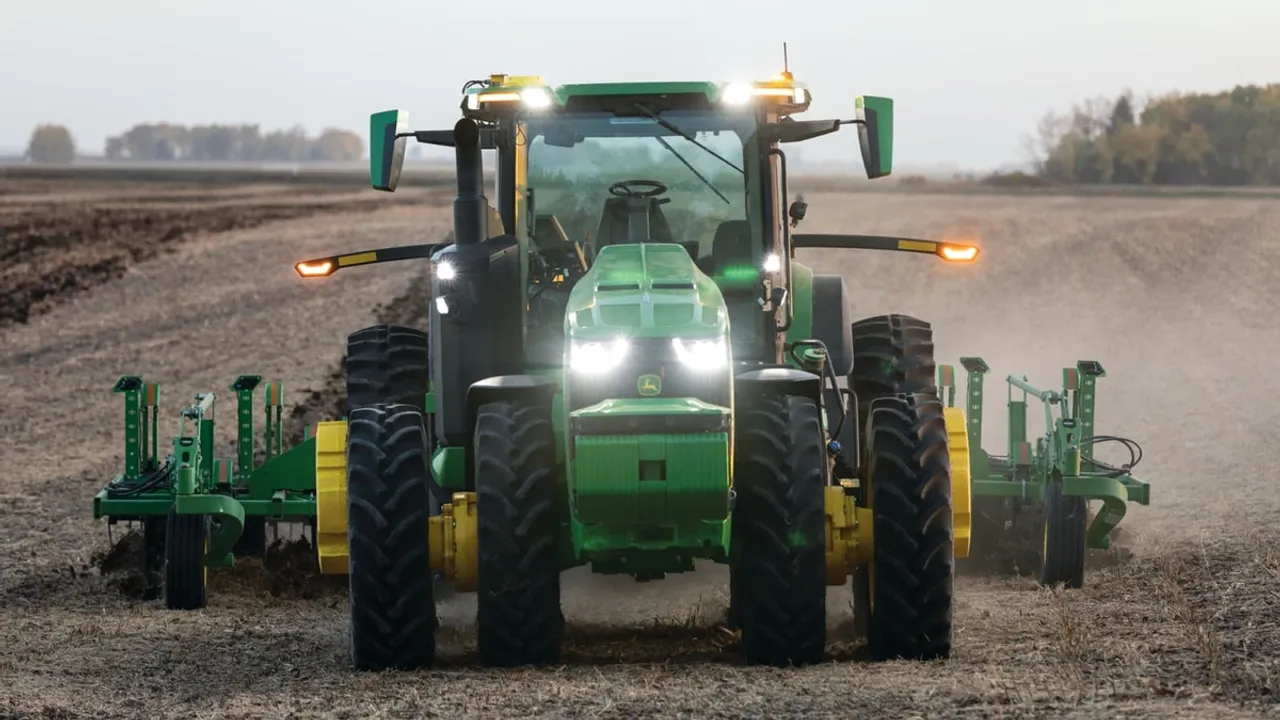A group of leading ag economists is projecting strong net farm incomes for the next couple years....
John Deere Targets Fully Autonomous Farming by 2030

John Deere, a leader in agricultural machinery, is working towards fully autonomous farming by 2030. Their aim is harnessing AI and machine learning to address pressing challenges, such as unpredictable weather, dwindling farmland, and labor shortages. Their See & Spray technology showcases this potential, using computer vision and machine learning to identify and target weeds, reducing herbicide usage. Moreover, John Deere plans to provide farmers with limited internet access the tools for precision agriculture by leveraging Elon Musk's Starlink infrastructure, demonstrating their commitment to democratizing advanced farming technologies.
A Groundbreaking Vision for Agriculture
Jahmy Hindman, John Deere's Senior Vice President and Chief Technology officer, explains the significance of AI in revolutionizing the agricultural landscape. The company's See & Spray technology exemplifies this potential.
In an effort to encourage even more technology adoption among farmers, John Deere is also developing solutions compatible with older equipment. This inclusive approach ensures that modern farming techniques are accessible to all, regardless of their machinery's age or sophistication.
The Birth of Autonomous Agriculture
Jorge Heraud, Vice President of Automation and Autonomy at John Deere, reveals the company's plans to create autonomous tractors and sprayers. By emphasizing the essential role of farmers in embracing autonomous farming technology, Heraud highlights the importance of collaboration between humans and machines.
Several startups are joining this agricultural revolution, with companies like 4AG, Aigen, and Guardian Agriculture focusing on autonomous harvesting robots, solar-powered ag robotics, and autonomous drone technology to address labor challenges in the sector.
A Global Impact
The advancements spearheaded by John Deere and its contemporaries have far-reaching implications. A more efficient and sustainable agricultural industry could significantly decrease food insecurity, reduce carbon footprints, and conserve water.
Looking ahead, John Deere's vision of fully autonomous farming by 2030 promises not only to reshape the agricultural landscape but also to redefine the relationship with the environment and food production.
As the company continues to innovate and push boundaries, the future of farming is set to be increasingly autonomous, efficient, and sustainable – a testament to human ingenuity and the power of technology to transform our world.
By embracing AI, machine learning, and other cutting-edge solutions, John Deere is paving the way for a new era in agriculture – one that holds the promise of addressing some of the most pressing challenges facing our planet today.
EDITOR’S TAKE:
Deere’s vision for the future is nothing short of extraordinary. It is the epitome of collaboration between humans and machines. When it comes to fruition, the technology and capabilities will vastly improve productivity, efficiency and output while simultaneously reducing environmental impact. Consumers will also benefit from such vision through a more sustainable food supply that is safe and inexpensive by world standards. You will hear more about this vision and other current developments during the upcoming AgRally 2024, which will be held on March 19 in Fort Worth, Texas. Be sure to encourage your farm/ranch customers to watch the event on RFD-TV or The Cowboy Channel. Furthermore, perhaps you could consider organizing a local National Agriculture Day event of your own to highlight the importance of your prospective customers.








